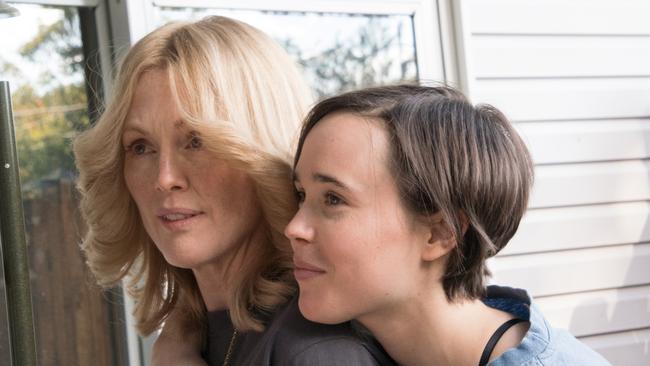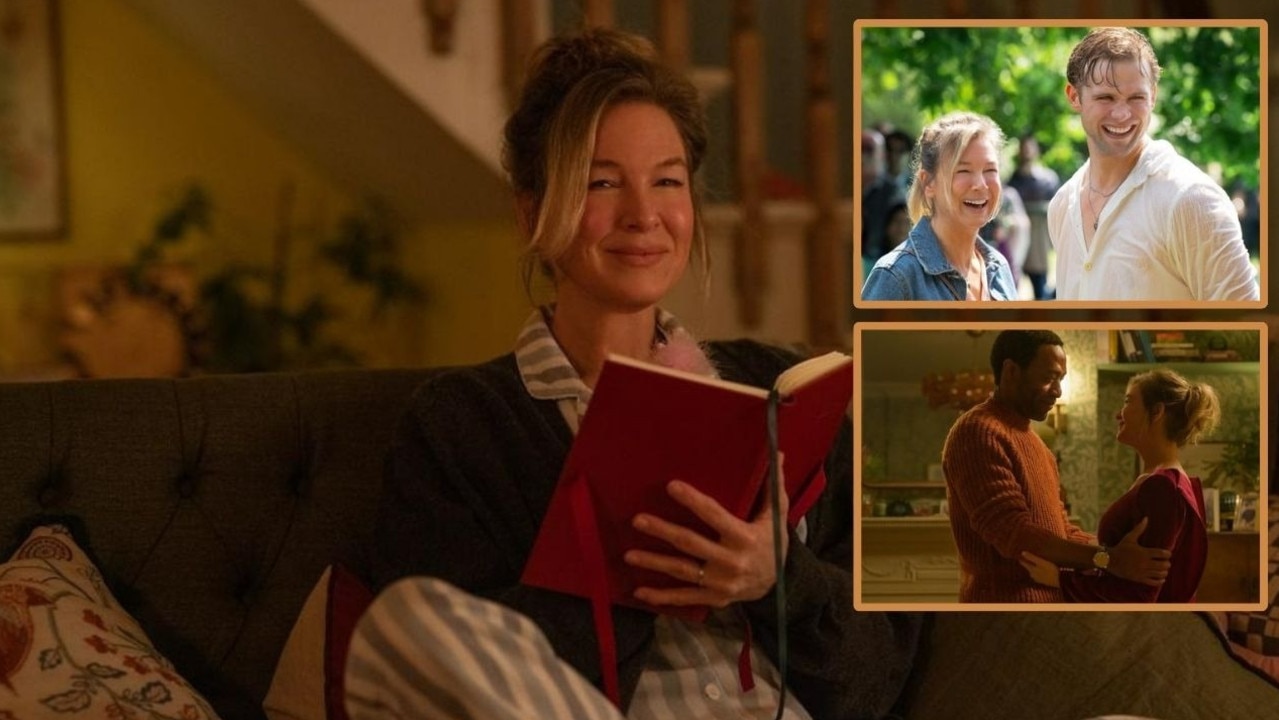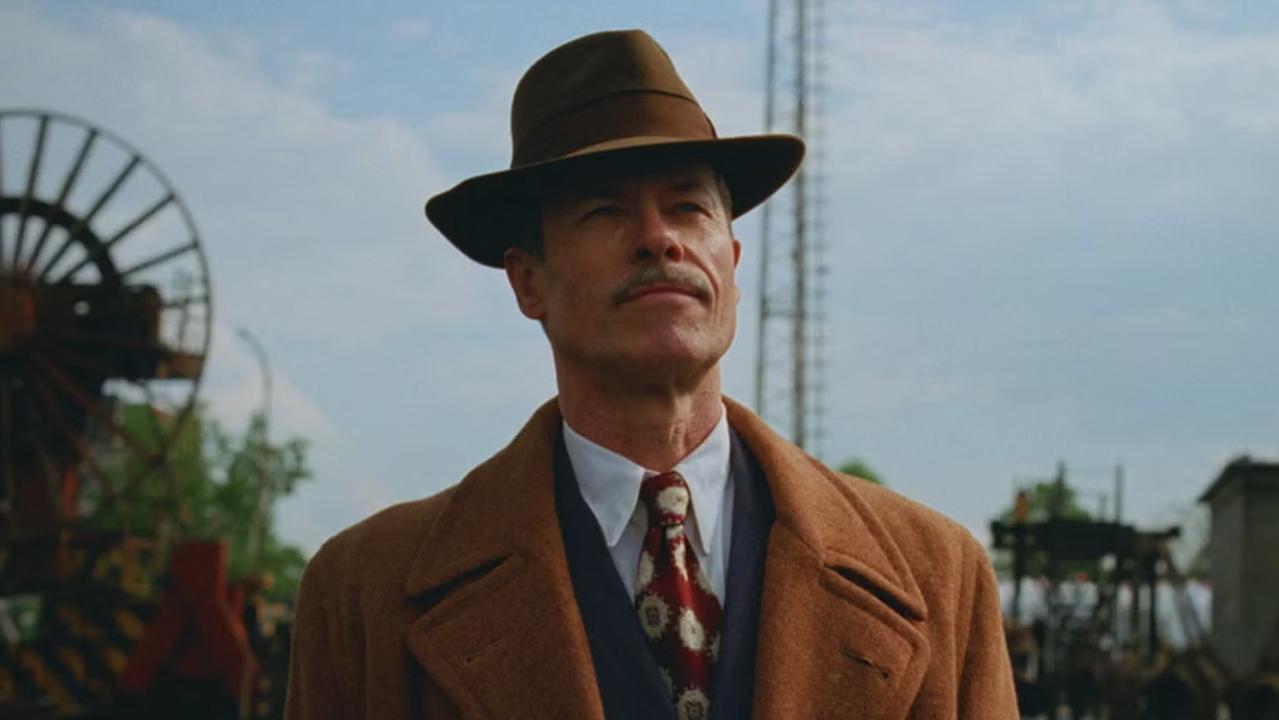Freeheld movie liberated star Ellen Page to come out as lesbian
Ellen Page enjoys her freedom and urges others to follow suit.

Ellen Page was not “out” when she was approached to play a woman struggling to have her gay relationship recognised by her local county. “Definitely not,” she says with a laugh.
“Quite closeted, in fact.”
But it’s acting and Page could easily take on the role of Stacie Andree who, with Laurel Hester (played by Julianne Moore) fought for their domestic partnership to be validated by the “freeholders”, the council of Ocean County, New Jersey, as Hester was dying of lung cancer. Being closeted didn’t affect her decision whether to do the film, she says.
“It was just one of those stories that was so moving, it wasn’t a concern for me.”
The drama, adapted from Cynthia Wade’s Academy Award winning short film documentary of the same name, took some time to develop. Page, and the American sociopolitical environment, changed in that time, culminating in a sense with the US Supreme Court decision in June ruling same-sex marriage was legal across the US and the 14 states with bans on same-sex marriage could no longer enforce them.
Freeheld, the feature film, “definitely is a celebration of how far we’ve come in America”, Page says. “But we need to recognise how much more there needs to be done,” she adds, noting that lesbian, bisexual, gay and transgender people comprise about 40 per cent of homeless youth in the US and in 31 states individuals can still be sacked or denied public housing for being gay or transgender.
“There’s so much more to be done and we hope the film can potentially demonstrate the real costs of discrimination and how it affects people lives,” Page says.
While making the film, she began to feel the pain of playing one of these crusading women while hiding her own sexuality.
The 28-year-old Canadian star of the X-Men series and Academy Award nominee for Juno speaks as something more than a sympathetic actress. She came out, to much acclaim, early last year in a speech at the Human Rights Campaign’s Time to Thrive conference. The change has been dramatic but not negative.
“For me, being closeted was affecting my career in a more negative way than being open about who I am and being able to live my life freely (as now),” she says.
Her experience was “not a nice place to be, not a happy place to be, and I really felt like I was losing creative inspiration or ambition and it was turning me into a bit of a closed-off person”.
She recalls questioning how she could continue to grow, not just as an individual but also as an actress and artist “and someone who wants to continue to create in their life”.
The roles haven’t dried up. She stars opposite Evan Rachel Wood in Patricia Rozema’s Into the Forest; hosts a travel show called Gaycation on Vice’s TV channel Viceland; and recently shot the comedy drama Tallulah, reuniting her with Juno’s Alison Janney.
Page says coming out has “only been positive because I’ve been the most creatively inspired and excited about working than maybe I ever have”.
“I want to work and I want to produce, and it’s a ripple effect into every area of my life,” she says.
There were difficulties as a closeted actress, including playing the role of pin-up that is invariably imposed on any actress aged under 30. But she adds: “I’m a very privileged person, of course, and lots of LGBT people face much, much, much, much more difficult times than me.
“I have a family that loves and accepts me, I get to do my job and keep my job. Other people can’t come out without being afraid of being fired. But, yeah, there were things that were hard, things that made me sad and, yes, affected my life in a negative way and I chose to change that.”
Not that she can urge anyone else to claim their sexuality in such a fashion “because a lot of people are in situations or in different parts of the world where if they came out they could be thrown in jail or killed”.
“So it’s easy to just be: ‘Come out, and live your life!’ Sadly, in a lot of places even just that is a privileged thing to do and that’s why major change still needs to happen which is societal.”
Page came to the realisation she should do so while working on Freeheld. The film, directed by Peter Sollett (Nick and Norah’s Infinite Playlist and Raising Victor Vargas), follows a story that attracted national attention as a respected female police officer requested the extension of her pension rights to her partner.
The film took some time to develop and this week, its screenwriter Ron Nyswaner, who also wrote Philadelphia, implied his screenplay had been softened. During a speech at the Los Angeles LGBT Centre’s Vanguard Awards, where he was being honoured, he said: “We must take care to protect our history and our culture. We must be careful as we become ‘mainstream’ that we don’t forget that we are the descendants of outlaws and rebels. We must resist the tendency to be ‘de-gayed’.”
While not naming Freeheld, he said a new project of his had been changed by producers who were fearful that its lesbian characters were too queer. “One of my recent gay-themed projects had a lot of potential. But the producers became fearful. And the gay characters were idealised, their edges were smoothed out, the conflict between them was softened.
“Over my vigorous objections — by the way, that’s for the record — the main characters were turned into lesbians with a lower-case L, because God forbid someone would think we were making a movie about a couple of dykes.
“Out of fear, they were normalised,” he said.
The Australian’s interview with Page took place before Nyswaner’s speech. But there is little doubt her experience has elevated the film’s status in public if nothing else. And she says she felt the responsibility to tell Stacie’s story “as truthfully and authentically as possible”.
“We feel that responsibility because they did something extraordinary and what they did had a huge ripple effect for legalising marriage in New Jersey that, of course, led to marriage equality for the whole country,” she says.
And Page’s experience will be as instructive as any film, even if she is wary of recommending it to every closeted individual.
“Obviously I didn’t come out for years, right, and I know the reasons why, I know what it feels like, that pressure feels like, so I wouldn’t judge anyone. But I do hope more people will come out because I do think it can help. It helps push things forward for sure, but you just never know what someone’s life’s been like. For me, for people’s wellbeing or health, I’d say come out. It’s awesome. That’s been my experience.”


